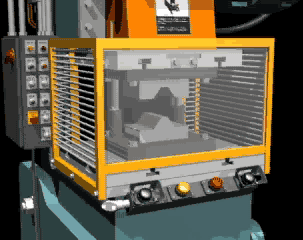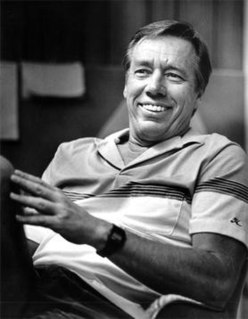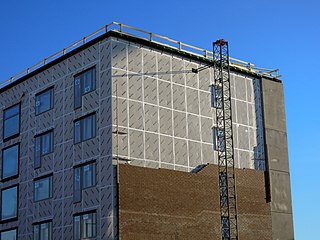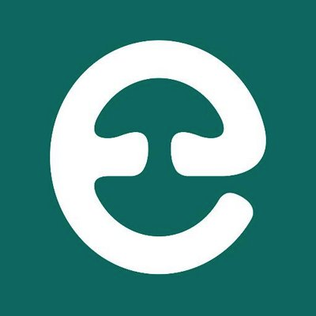Related Research Articles

Polystyrene (PS) is a synthetic aromatic hydrocarbon polymer made from the monomer known as styrene. Polystyrene can be solid or foamed. General-purpose polystyrene is clear, hard, and brittle. It is an inexpensive resin per unit weight. It is a poor barrier to oxygen and water vapour and has a relatively low melting point. Polystyrene is one of the most widely used plastics, the scale of its production being several million tonnes per year. Polystyrene can be naturally transparent, but can be coloured with colourants. Uses include protective packaging, containers, lids, bottles, trays, tumblers, disposable cutlery, in the making of models, and as an alternative material for phonograph records.

A surfboard is a narrow plank used in surfing. Surfboards are relatively light, but are strong enough to support an individual standing on them while riding an ocean wave. They were invented in ancient Hawaii, where they were known as papa he'e nalu in the Hawaiian language, they were usually made of wood from local trees, such as koa, and were often over 460 cm (15 ft) in length and extremely heavy. Major advances over the years include the addition of one or more fins (skegs) on the bottom rear of the board to improve directional stability, and numerous improvements in materials and shape.

A structural insulated panel, or structural insulating panel, (SIP), is a form of sandwich panel used in the construction industry.

Wood-plastic composites (WPCs) are composite materials made of wood fiber/wood flour and thermoplastic(s) such as polythene (PE), polypropylene (PP), polyvinyl chloride (PVC), or polylactic acid (PLA).

Insulating concrete form or insulated concrete form (ICF) is a system of formwork for reinforced concrete usually made with a rigid thermal insulation that stays in place as a permanent interior and exterior substrate for walls, floors, and roofs. The forms are interlocking modular units that are dry-stacked and filled with concrete. The units lock together somewhat like Lego bricks and create a form for the structural walls or floors of a building. ICF construction has become commonplace for both low rise commercial and high performance residential construction as more stringent energy efficiency and natural disaster resistant building codes are adopted.

Life-Like was a manufacturer of model trains and accessories. In 1960 the company purchased the assets of the defunct Varney Scale Models and began manufacturing model trains and accessories under the name Life-Like in 1970. In 2005 the parent company, Lifoam Industries, LLC, chose to concentrate on their core products and sold their model railroad operations to hobby distributor Wm. K. Walthers. Today, the Life-Like trademark is used by Walthers for its line of value-priced starter train sets.

Stamping is the process of placing flat sheet metal in either blank or coil form into a stamping press where a tool and die surface forms the metal into a net shape. Stamping includes a variety of sheet-metal forming manufacturing processes, such as punching using a machine press or stamping press, blanking, embossing, bending, flanging, and coining. This could be a single stage operation where every stroke of the press produces the desired form on the sheet metal part, or could occur through a series of stages. The process is usually carried out on sheet metal, but can also be used on other materials, such as polystyrene. Progressive dies are commonly fed from a coil of steel, coil reel for unwinding of coil to a straightener to level the coil and then into a feeder which advances the material into the press and die at a predetermined feed length. Depending on part complexity, the number of stations in the die can be determined.
Clark Foam was a Californian company that manufactured surfboard blanks — foam slabs, reinforced with one or more wooden strips or "stringers" — cast in the rough shape of a surfboard and used by surfboard shapers to create finished surfboards. Founded in 1961 by Gordon "Grubby" Clark, Clark Foam established a near-monopoly on the American market, and a strong presence in the international market, which it held until the company's unexpected closure in 2005.

Building insulation materials are the building materials which form the thermal envelope of a building or otherwise reduce heat transfer.

A surfboard shaper is someone who designs and builds surfboards. The process of surfboard shaping has evolved over the years, and the shaper often tailors his or her work to meet the requirements of a client or a certain wave. Surfboard shapers can be independent or work in collaboration with mass-production companies.

Hobart "Hobie" Alter was an American surf and sailing entrepreneur and pioneer, creator of the Hobie Cat catamarans, and founder of the Hobie company.

Rigid panel insulation, also referred to as continuous insulation, can be made from foam plastics such as polyurethane (PUR), polyisocyanurate (PIR), and polystyrene, or from fibrous materials such as fiberglass, rock and slag wool. Rigid panel continuous insulation is often used to provide a thermal break in the building envelope, thus reducing thermal bridging.

Grain Surfboards is an American company based in York, Maine that manufactures hollow wooden surfboards. The surfboards are made primarily from northern white cedar, with some western red cedar added for color accent. Grain manufactures custom boards, as well as selling kits and offering classes where surfers can build their own boards.

Plastics are a wide range of synthetic or semi-synthetic materials that use polymers as a main ingredient. Their plasticity makes it possible for plastics to be moulded, extruded or pressed into solid objects of various shapes. This adaptability, plus a wide range of other properties, such as being lightweight, durable, flexible, and inexpensive to produce, has led to its widespread use. Plastics typically are made through human industrial systems. Most modern plastics are derived from fossil fuel-based chemicals like natural gas or petroleum; however, recent industrial methods use variants made from renewable materials, such as corn or cotton derivatives.

Ecovative Design LLC is a materials company headquartered in Green Island, New York that provides sustainable alternatives to plastics and polystyrene foams for packaging, building materials and other applications by using mushroom technology.
Dale Velzy was an American surfboard shaper, credited with being the world's first commercial shaper. He opened the first professional surf shop in Manhattan Beach, California in 1950, personally hand fashioning the surfboards from wood or synthetic material. By 1960, Velzy owned five retail shops and three production facilities in California and Hawaii. He was known as "Hawk" for his keen eyesight.
UFP Technologies, Inc., founded in 1963 and based in Newburyport, Massachusetts, is a designer and custom manufacturer of components, sub-assemblies, products and packaging utilizing highly specialized foams, films, and plastics primarily for the medical market.

Zanotta is an Italian furniture company particularly known for the iconic pieces of Italian design it produced in the 1960s, 70s, and 80s. These include the "Sacco" bean bag chair and "Blow", the first mass-produced inflatable chair. The company was founded in 1954 and has its main plant in Nova Milanese. In 1984 Zanotta established its experimental division, Zabro, headed by Alessandro Guerriero, with Alessandro Mendini and Stefano Casciani. Since the death of its founder, Aurelio Zanotta, in 1991, it has been run by members of his family. Zanotta's products were awarded the Compasso d'Oro in 1967, 1979, 1987 and 2020.
References
- 1 2 "Surftech Announces New Ownership" (January 07, 2015). prweb.com. Retrieved January 21, 2015.
- 1 2 3 4 5 Motil, Guy (2007). Surfboards. Globe Pequot. ISBN 0-7627-4621-1., p. 201.
- 1 2 Leslie Earnest (December 8, 2005). "Production of Surfboards Overseas Expected to Swell". Los Angeles Times . Retrieved April 8, 2013.